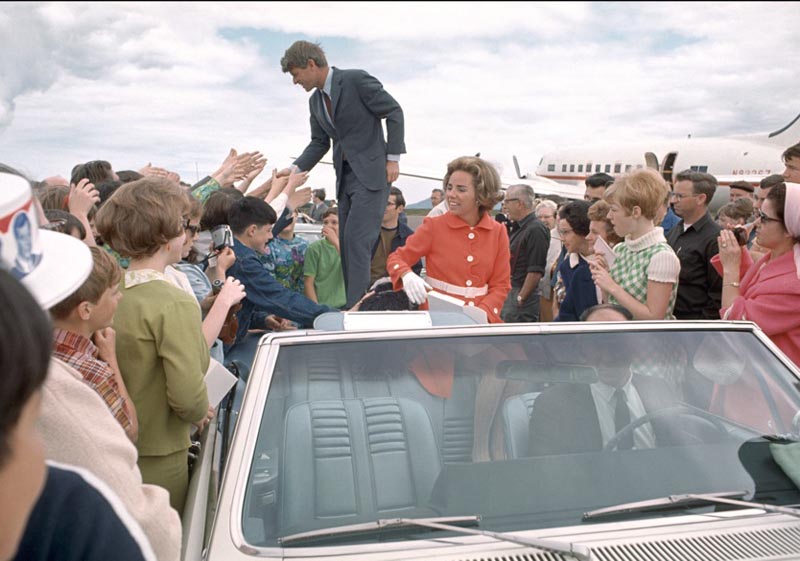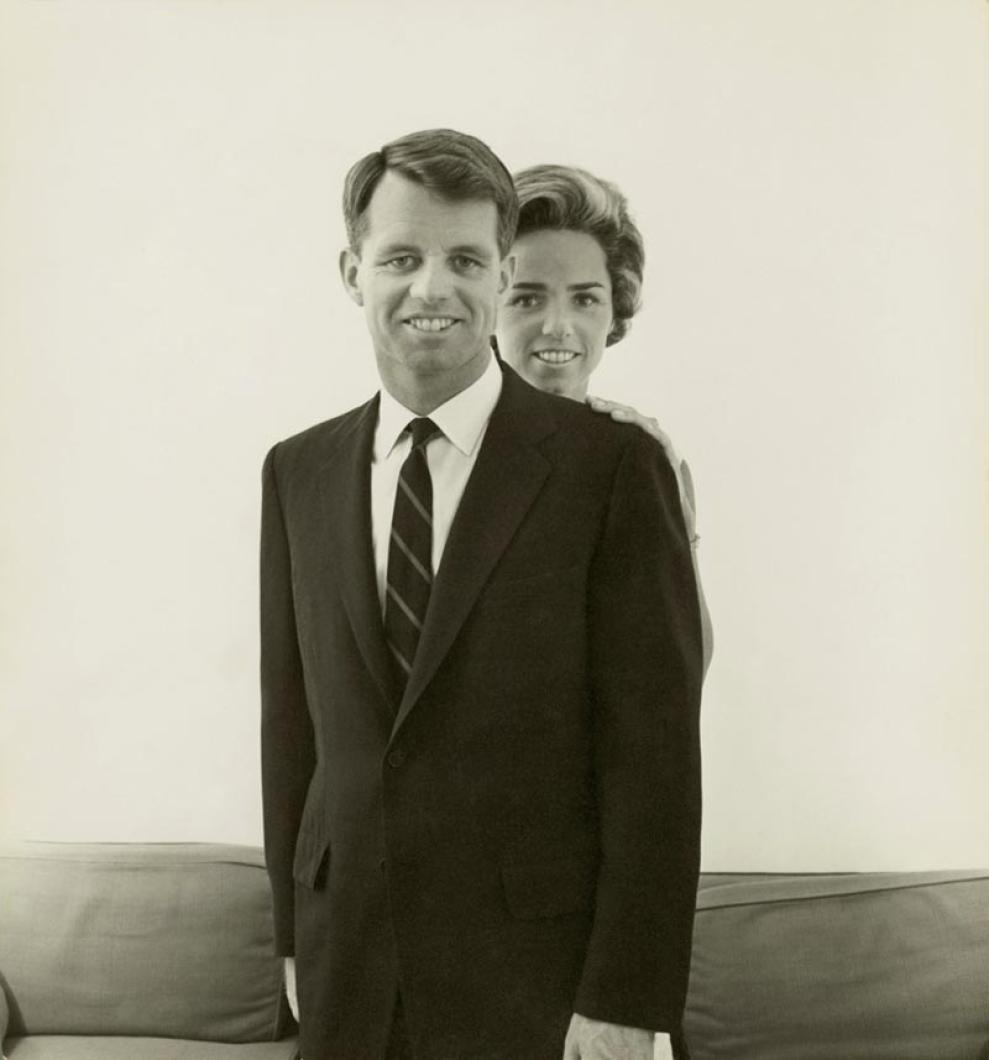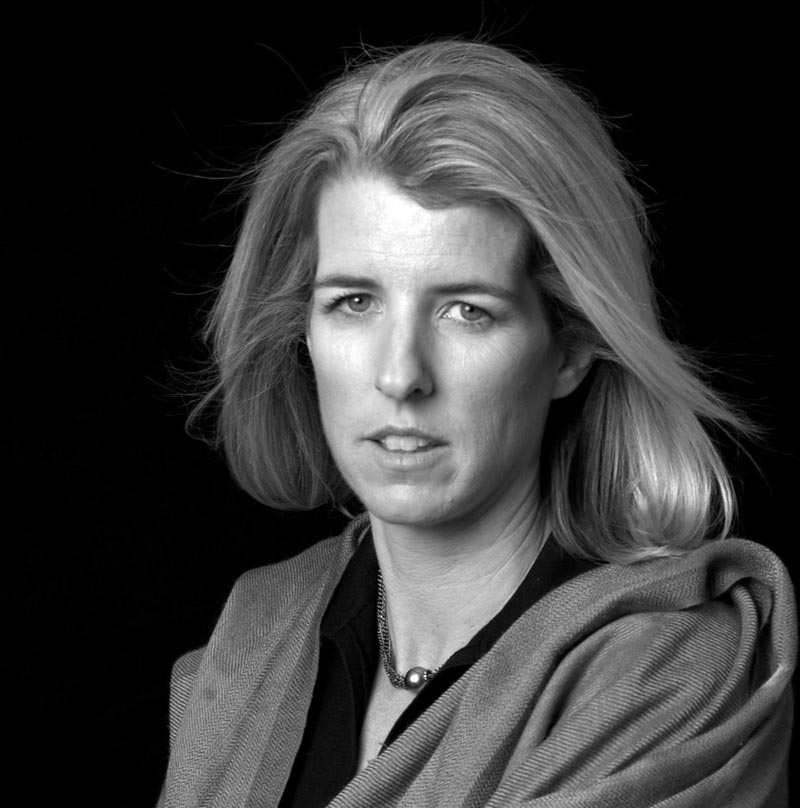Ethel Skakel Kennedy declined interviews for more than 35 years. But when her eleventh child, Rory Kennedy, asked her to be the protagonist in a full-length documentary for HBO, she agreed.
“If you asked her, I think she would tell you it was because I asked her to do it,” Rory said. Ms. Kennedy is an experienced documentary film-maker but she was also hesitant about making the movie.
“HBO had approached me about doing the film [many times], and I was initially resistant to the idea,” Rory recounted. “I said no a number of times, and they kept at it, so I said, ‘I’ll let her say no . . . I called her on the phone, she said she was willing to do it. I was totally, totally surprised.”
Rory Kennedy is Ethel and Robert F. Kennedy’s last child, born six months after her father’s assassination. Though the filmmaking was an emotional process she is pleased with the result.
“I’m certainly happy . . . [to have] shared her story with so many people who weren’t aware of her accomplishments,” she said. “She’s pretty remarkable in my mind.” Ms. Kennedy was the writer, director and producer of the film, Ethel, which will appear on HBO in the fall.
Vineyarders get a first look at the film this Monday, July 30, when the Martha’s Vineyard Film Festival screens the documentary at their weekly series held at the Chilmark Community Center. Rory Kennedy will take part in a discussion and be available for questions at the screening.
“I love the Vineyard and have spent a good amount of time there, so I welcome the opportunity to screen it on the Vineyard,” she said.

Brian Ditchfield, managing director of the Film Festival, first saw the movie at the Sundance Film Festival. “Not only is it a remarkably well-made film, but it has great Vineyard relevance,” he said. “I felt like it was the perfect match. I felt this is what people who come here want to know . . . an insider look at the Kennedy family.”
Ethel Kennedy, who was born Ethel Skakel in 1928, occupied the passenger seat in her relationship with her husband, Robert, by supporting his every endeavor.
“She is definitely a product of the time, as we are all a product of our times . . . I think that women played a different role in society then, the expectations for them were different than what they are today,” Rory said.
Ethel did take an active role in JFK’s senatorial and presidential campaigns, as well as her husband’s senatorial and presidential campaigns, hosting tea parties, and knocking on doors.
“Their relationship is a huge part of her life, and who she is, and her contribution in the world,” Rory said. “She was pretty attached . . . to his contributions. The story is told through the lens of who she is, and her relationship with the children, and what her childhood was like.”
In raising eleven children, Ethel was pregnant for approximately 99 months, her daughter reminds her in the film.
“Her ability to adapt to that and make the most of what she was given, speaks enormously to who she is as a person,” Rory said. Over the course of the film, her children describe her as a general goof, a horrible cook (having once fried bananas in Vaseline), a daredevil athlete, a dedicated mother and a devoted Catholic.
In the film, Rory emphasized the themes that seemed most prevalent in the interviews she conducted with eight of her siblings.
“The love story between my mother and father came across in every interview, especially for the older kids who witnessed it and could speak of it,” she said. “There were areas like that, that I excavated a little bit more than I had intended to, based on what I was hearing in [the interviews].”
For example, her father’s role as chief counsel of the so-called Rackets Committee, which was dedicated to investigating corruption in the trade union movement led to a clash with Jimmy Hoffa, leader of the Teamsters Union, and prompted Mr. Hoffa to threaten the Kennedy family. “There was lot of anxiety around that,” Rory said.
But the Kennedy family story is also inextricably intertwined with the major historical events of the period, a fact that becomes apparent as family home video is blended seamlessly with archival footage.
“In my own upbringing, we were [taught to have] huge respect for learning from history and reading from history,” Rory said. To create the film, Rory tapped into a wealth of visual sources, including public and private archives, and her mother’s collection of 16,000 family photographs. She was also granted access to the Kennedy Library in Boston, which she calls “a great treasure trove of materials.” Some of the footage, especially that of the Skakel family, has never been seen before.
“It was exciting to uncover some of this film and photographs, integrate it with [the historical footage],” she said. Robert Kennedy’s affectionate letters to his children also play a role in the film.
Rory’s earlier documentaries deal openly with political and social issues, but this film was the first personal project she undertook. She said it was uncomfortable to revisit the tragedies her family has suffered. Aside from her father’s untimely death, her uncle Jack [JFK], and two brothers, Michael and David, also died under tragic circumstances.
“It was difficult . . . [My mother] isn’t somebody who really dwells on these past experiences, so it’s not really in our collective comfort zone to revisit these harder moments,” she said. “It is part of my mother’s story and so it’s important to go into that territory, even though it is not comfortable.”
On film, Ethel’s face lights up when she is asked about Rory’s birth, which took place just six months after the death of her husband. “That was the joy of my life,” Ethel says. At the end of the film, Ethel commends her children for doing “so well in their chosen careers,” attributing their success to Daddy. “I just don’t feel I can take the credit,” Ethel says.
Ethel and the Kennedy siblings often seem to forget the camera and address Rory’s questions with sincerity and candor. The sibling interviews share a sense of nostalgia for the era, as well as a high admiration for their father, mother and uncle Jack. They refer to Robert as Daddy and Ethel as Mummy or Mum, exclusively.
“I thought it was kind of sweet and familiar,” Rory said. “I was aware of it as it happened, it kind of naturally happens when I am with my mother.”
The documentary allowed Rory to find out what her family was like in the years before she was born. “To be able to ask all of the questions one wants to ask but doesn’t necessarily have the opportunity to do so.”
The film will be shown at the Chilmark Community Center on Monday, July 30, at 6 p.m. and again at 8:30 p.m. Rory Kennedy will discuss the film, and answer questions at a reception at 7:45 p.m. held on the community center lawn.





Comments (3)
Comments
Comment policy »